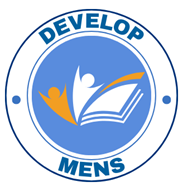Building a strong CV without much—or any—relevant work experience can feel challenging, especially when you’re just starting out. But the truth is, experience comes in many forms, and employers are often just as interested in your potential, skills, and mindset as they are in past job titles.
If you’re wondering how to make your CV stand out even without formal experience, here are smart and proven ways to do it.
1. Highlight Your Education – and What You Did With It
Your academic background is more than a list of schools and diplomas. If you worked on group projects, gave presentations, wrote research papers, or participated in practical workshops, include them. Focus on:
- Courses or modules that are relevant to the job
- Skills you developed (e.g. teamwork, research, time management)
- Academic achievements or awards
Example:
“Collaborated on a semester-long research project analyzing social media impact on youth mental health. Presented findings to a panel of educators and peers.”
2. Include Volunteering and Community Involvement
Volunteering shows initiative, responsibility, and a willingness to contribute—qualities employers love. Whether you helped organize a local event, supported a charity, or participated in environmental cleanups, these experiences count.
Example:
“Volunteered at local youth center, coordinating weekend activities and managing social media updates.”
3. Use Internships, Freelance Work, or School Projects
Even short-term, unpaid work or personal projects can showcase your skills. If you helped someone build a website, assisted with marketing, or designed posters for your school event, that’s practical experience.
Tip: Format it like a job entry: include your role, the tasks you performed, and the outcomes.
4. Mention Online Courses and Certifications
Self-education is a strong signal of motivation. Include any MOOCs (like DevelopMENS), online training, or certifications you’ve completed—especially if they’re related to the job you want.
Platforms to explore:
- Coursera
- Udemy
- LinkedIn Learning
- Erasmus+ YouthPass (if applicable)
5. List Your Soft Skills (With Evidence)
Soft skills like communication, adaptability, leadership, and problem-solving are valuable in any job. But don’t just list them—prove them through examples.
Instead of:
“Good communication skills”
Say:
“Developed communication skills by organizing peer study groups and presenting at student events.”
6. Add Languages, IT Skills, and Tools
Do you speak more than one language? Can you use Excel, Canva, WordPress, or Photoshop? Mention all relevant tools and digital platforms you’re familiar with.
7. Create a Personal Project or Portfolio
If you’re serious about entering a field, create your own opportunity:
- Start a blog or podcast
- Design a small website
- Run a social media page
- Build a portfolio on Behance, GitHub, or Notion
It shows passion and initiative—and it’s something to talk about in interviews.
8. Use a Strong Summary Section
At the top of your CV, include a short summary paragraph where you highlight who you are, your goals, and what you bring to the table—even if it’s not from a job.
Example:
“Motivated and creative psychology graduate with strong presentation and writing skills. Passionate about youth development, digital media, and continuous learning. Looking to apply my skills in a dynamic and collaborative environment.”
Final Words
Lack of work experience doesn’t mean lack of value. Focus on what you’ve learned, what you’ve contributed to, and what you’re working on now. Employers appreciate honesty, potential, and effort—and a thoughtfully written CV can help you stand out, even at the very beginning of your journey.


